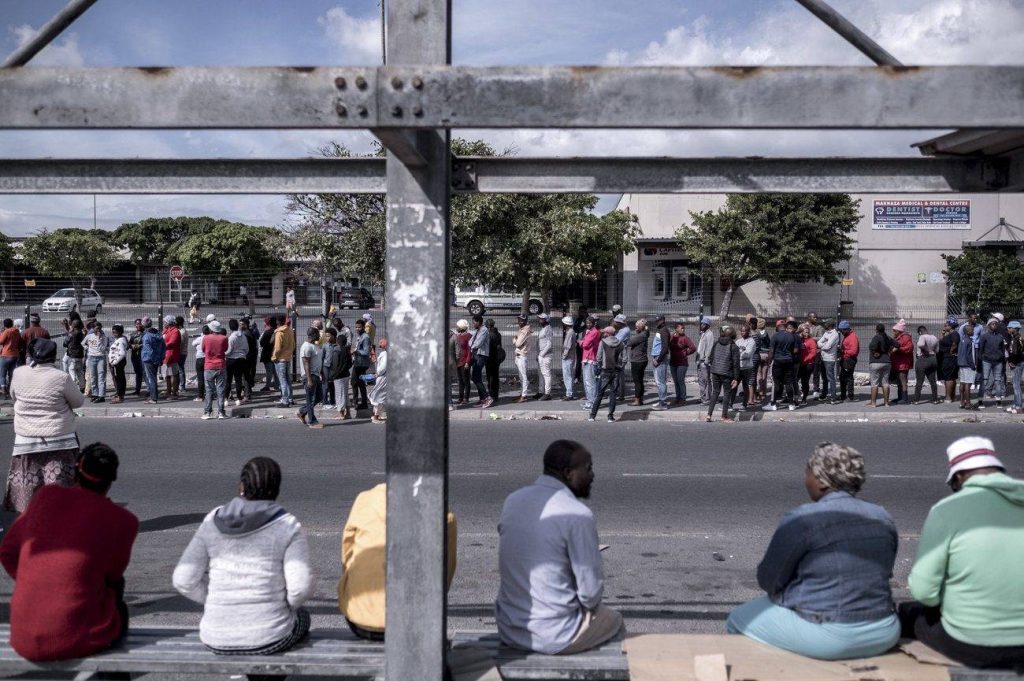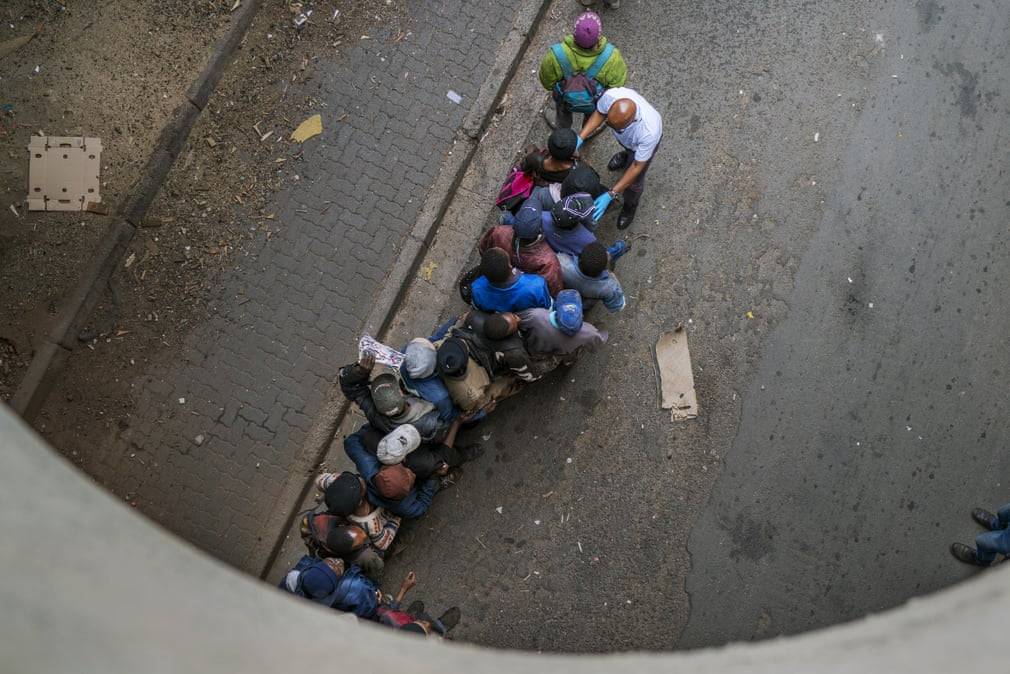Is The Lockdown Revealing South Africa’s Social Rifts Once Again?

SA’s lockdown has been on for nearly a month. While businesses struggle, the situation is reopening talks of the country’s status as the most unequal in the world.
The confinement, stay-at-home and relief measures taken by South Africans appear to be further revealing the thick line between the country’s classes and societies.
At a substantial scale, coronavirus is creating a surpassing divide between the rich and poor in South Africa.
Social Distancing

Even 26 years since South Africa’s apartheid, the country is still, according to the World Bank, the most unequal country on earth. The fourth week of the national COVID-19 lockdown brings the country’s divided reality into a sharper focus.
Densely-populated townships and cities are being patrolled by security forces. The police and the army stand by on the streets to enforce strict measures in order to inhibit the spread of the novel pandemic.
But in places like Khayelitsha—the largest of Cape Town’s densely-populated townships—it has not been entirely easy to adhere to the health warnings from the government.
Living in cramped homes and lodging in super-occupied hostels makes it hard to observe the much-preached social distancing lifestyle necessary to stop the spread of COVID-19.
Staying indoors appears to be lost in translation for informal settlements. Most of these places make use of communal toilets and taps. More so, getting essentials proves difficult as shops are quite far from communities.
Even as teams of janitors attempt daily to keep the lavatories clean, they find themselves short of cleaning products. Each of these facilities are used by between 30 to 40 people per day.
Homelessness

While places like Cape Town and Johannesburg have residents who wear face masks and use hand sanitizers on a regular, informal settlements await on the government to provide them with the essentials to fight the virus.
To confront homelessness during the early stage of SA’s lockdown, government officials rounded up no less than 1,000 people into a rusted stadium in Pretoria.
Should the virus spread, thousands of homeless people in Pretoria could take the worst hit. However, the tents provided on the field are being slept in by 2 to 3 people, another threat to social distancing for people most of whom have not been tested.
For fear of contracting the virus, many of the rallied men prefer to sleep in the stands, rather than in the tents. But again, sleeping out in the open exposes them to other possible threats, like robbery.
The situation is prompting many of the homeless to choose living in streets over staying confined in an impaired, overcrowded stadium. The fear of one person contracting the virus and spreading it to everyone else who are unprotected, bothers many.
Asides from the stadium, the government has also moved other thousands from Cape Town to fenced-in enclosures. As more are admitted, the steads become overcrowded. Officials says building more tents to reduce this is still a work in progress.
Pawn Sacrifice?
In South African cities, the coronavirus lockdown is affecting everyone in different forms. In the suburbs, nonetheless, the problems appear less urgent than what’s obtainable in informal settlements.
In places like Darrenwood, Cresta and Northcliff, it is not impossible for people to maintain social distance. Residents can afford vehicles they can stay in and can stock up their fridges with food to reduce their dependence on movement and palliatives.

In as much as job losses and pay cuts do not come as a blessing to any one, suburban dwellers are hardly complaining about running out of food. Being able to afford shelter more than the rural dwellers puts South Africa’s checkered history with epidemics and social division in the spotlight—again.
In a place like downtown Johannesburg, SA’s lockdown has locals lining up to get food in what has now become a daily routine. Being that they cannot afford to stockpile like their city and suburban counterparts, they have to endure long queues and sustain on what they can get.
Riots have erupted in Khayelitsha after rumors of food distribution emerged false. What’s worse, some shops and food trucks have been looted, both in and out of the demonstrations.
In some South African provinces, alleged government officials are hoarding or selling food parcels earmarked for the needy and destitute, and even diverting them to their friends and families.
Epidemic Replay
As obvious, this is not the first time an epidemic is revealing the fault lines in poverty and South Africa’s inequality reality. During the historic Spanish flu on the early 90s, the same issues were noticed.
When South Africa took a blow from the flu in 1918, some of its satellite settlements created during earlier outbreaks were replaced by others further from the urban centers. These way away from the reach of informal settlers.

For instance, the first forced expulsions of black Africans from Cape Town and Johannesburg came in response to plagues in the early 20th century. At that time, black neighborhoods in the cities were considered health risks by the white elite.
A similar story surrounds the origin of Soweto—a township of the City of Johannesburg Metropolitan Municipality in Gauteng. The pneumonic plague of 1904 led to its inception, when Indians, not Africans, were allowed to return to Soweto after the epidemic.
Today, SA’s lockdown has led to the eviction of families from long-standing informal settlements that exist on city-owned lands. Outcries from affected families show most of lack shelter in an pandemic as lethal as coronavirus.
Refugees in the country have been removed from buildings in South Africa’s city centers where they’ve been squatting and managing. There’s hardly a correct telling of how things will unfold as SA’s COVID-19 cases are now at
3,635.
Featured Image: Tommy Trenchard for NPR